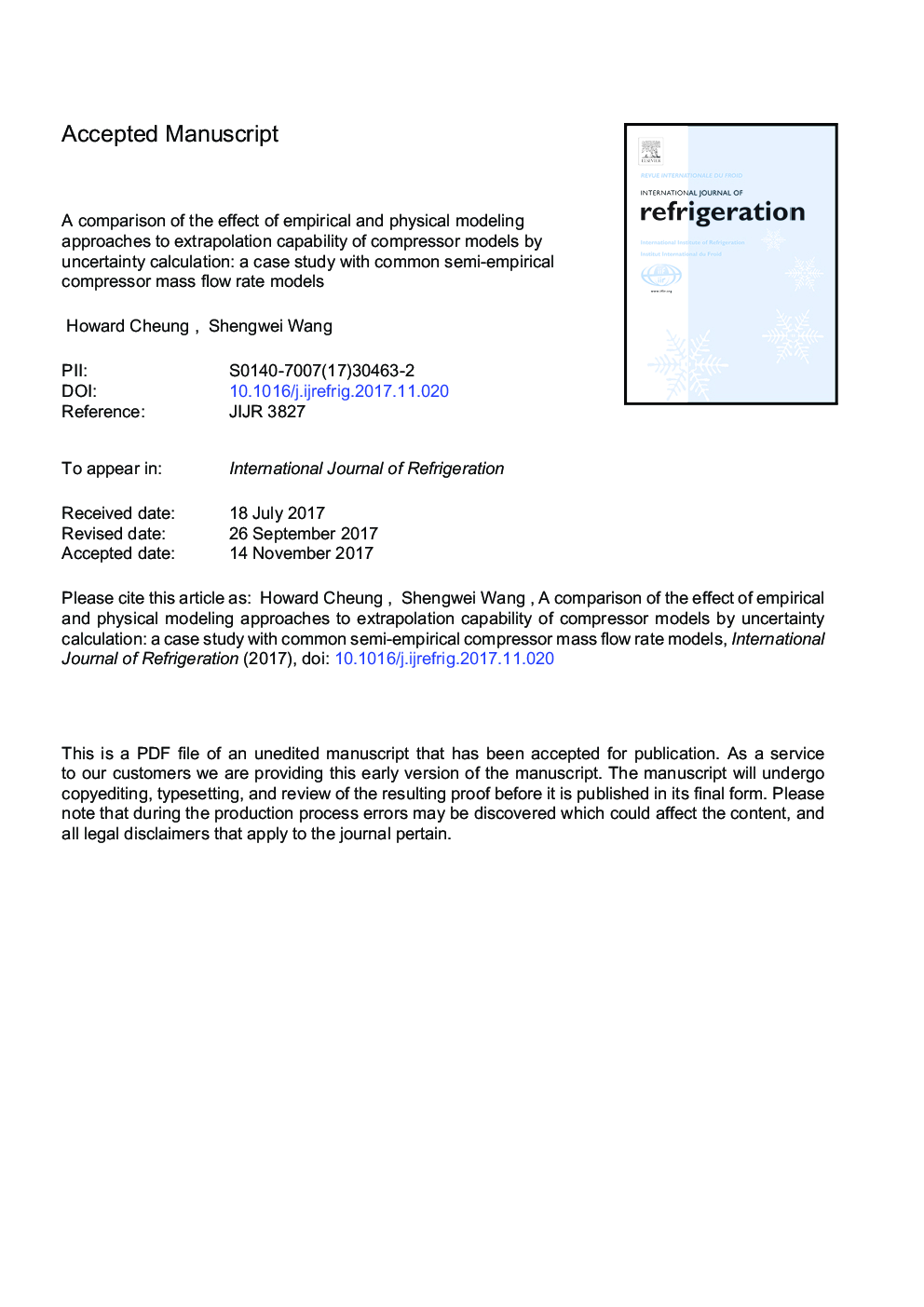| Article ID | Journal | Published Year | Pages | File Type |
|---|---|---|---|---|
| 7175401 | International Journal of Refrigeration | 2018 | 34 Pages |
Abstract
Some semi-empirical compressor models are claimed to be more accurate at extrapolation conditions than their empirical counterparts which have a long history of industrial applications due to their uses of physical principles, but it is unknown how much improvement the principles can bring to the modeling of extrapolation scenarios quantitatively. This paper studies the effect of the number of empirical coefficients and physical principles on model accuracy and uncertainty by comparing the estimation of five regression models of compressor mass flow rates. The choice of model training data follows the industrial norm, and model accuracy and uncertainty are calculated. The quantitative results show that the use of neither empirical coefficients nor physical principles guarantees good accuracy and reliability. If a coefficient is redundant to explain the behavior of the phenomenon, regardless of its empirical or physical origin, it should be removed to reduce model inaccuracy in extrapolation scenarios.
Keywords
Related Topics
Physical Sciences and Engineering
Engineering
Mechanical Engineering
Authors
Howard Cheung, Shengwei Wang,
